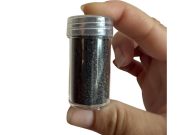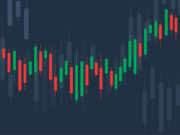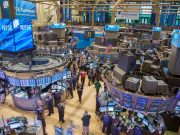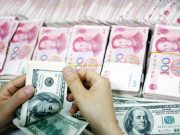Warren Buffett just did something he hasn’t done in three years.
He bought stocks. Real money. $170 million worth.
But here’s what’s extraordinary: While he’s been dumping Apple, Bank of America, and virtually everything else in Berkshire’s portfolio – $212 billion in sales versus just $34 billion in purchases – he’s quietly loading up on two specific stocks 6,000 miles away from Omaha.
And when you understand WHY, you’ll realize this isn’t just an investment. It’s an escape plan.
Buffett is preparing for something massive. Something that’s going to devastate American investors. And he just showed us exactly how he’s protecting Berkshire’s wealth for the next 50 years.
Let me show you what the Oracle of Omaha sees that nobody else does…
Related: Warren Buffett just liquidated billions of shares. Bill Gates sold 500,000 shares of Microsoft. Jeff Bezos filed to sell Amazon shares worth $4.8 billion. What is going on? It’s something we haven’t seen for more than a century… [Full Story]
The Two Stocks Buffett Says He’ll NEVER Sell
Between March and September, through Berkshire’s insurance subsidiary National Indemnity – a detail that most analysts completely missed – Buffett added 6.6 million shares of Mitsui and 1.9 million shares of Mitsubishi.
These aren’t household names. They’re not sexy tech stocks. They’re not even American companies.
They’re Japanese trading houses. Boring, century-old conglomerates that most investors have never heard of.
But here’s what should make you sit up straight: At Berkshire’s shareholder meeting this year, Buffett and his successor Greg Abel made an unprecedented declaration. They said Berkshire will hold these stocks for “at least 50 years.”
Fifty. Years.
Think about that. Buffett is 95 years old. He’s not planning to be around for 50 more years. This is him talking about Berkshire’s holdings long after he’s gone. This is about legacy. This is about survival.
And he just pushed Berkshire’s stakes in both companies above 10% – the maximum he was allowed until he personally negotiated with Japanese management for permission to buy more.
Why Japan? The Answer Will Terrify You
Here’s what Wall Street doesn’t understand: This isn’t about finding bargains. This is about fleeing danger.
Look at the numbers:
- Mitsubishi trades at 1.5 times book value
- Mitsui trades at 1.4 times book value
- The Japanese market’s CAPE ratio is below its 30-year average
Meanwhile, in America:
- The S&P 500 trades at 41 times cyclically adjusted earnings (highest since 1999)
- Tech stocks trade at infinity times earnings
- The market is priced for perfection in a world going to hell
Buffett isn’t buying Japan because it’s cheap. He’s buying Japan because America is insanely expensive. And about to get a lot cheaper.
The $340 Billion Cash Pile That Proves I’m Right
Editor’s Note: One of the biggest stock market events in 25 years is rapidly unfolding… The economist who predicted the 2008 Financial Crisis says it will be: “The Biggest Crash of Our Lifetime.” Cutting the entire tech market by HALF – virtually overnight. This is why the world’s financial elite are panic-selling stocks at the fastest rate in a decade. [Full Story…]
Let me connect the dots for you.
Berkshire Hathaway is sitting on $340 billion in cash. That’s not a typo. Three hundred and forty BILLION dollars.
That’s more cash than the market cap of all but 15 companies in the entire S&P 500.
Now ask yourself: Why would the greatest investor in history hoard cash like a Depression-era grandmother?
I’ll tell you why. Because he knows what’s coming.
He’s seen this movie before. In 1999. In 2007. In every bubble that eventually burst. And he knows that when this one pops – and it will pop – having cash will be like having water in the desert.
But here’s the genius part: He can’t just sit in U.S. dollars. Not with $36 trillion in national debt. Not with the Fed ready to print trillions more at the first sign of trouble.
So he’s diversifying into the one place that offers value, stability, and isn’t going to print their currency into oblivion: Japan.
The Five Pillars of Our Japanese Investment Strategy
Buffett isn’t just buying Mitsui and Mitsubishi. He’s building positions in five Japanese trading houses:
- Itochu – 400 years old, survived world wars, still growing
- Marubeni – Controls resources from grain to energy
- Mitsubishi – Basically owns half of Japan’s economy
- Mitsui – The original zaibatsu, dating to 1673
- Sumitomo – 400 years of compound returns
These aren’t companies. They’re empires. They own everything from convenience stores to copper mines, from shipping fleets to semiconductor plants.
And here’s what’s beautiful: They’re run EXACTLY like Berkshire. Fortress balance sheets. Diverse income streams. Long-term thinking. Shareholder-friendly management.
Buffett called them “really outstanding businesses.” Coming from a man who’s analyzed every major company on Earth for 70 years, that’s not praise. That’s coronation.
The Partnership Play Nobody Sees Coming
But here’s the real secret – and it’s something Greg Abel let slip at the shareholder meeting:
Related: Wanted! 300 People to Partner with Elon Musk on Project Colossus
“We really do hope to do big things with them.”
Big things. With $340 billion in cash.
Think about what that means. Berkshire isn’t just buying stocks. They’re building bridges. Creating alliances. Establishing partnerships that will allow them to deploy massive capital OUTSIDE the U.S. market.
When American stocks crash 50% (and they will), Berkshire will be buying Japanese assets at reasonable prices.
When the dollar gets debased (and it will), Berkshire will have yen exposure.
When U.S. companies struggle with debt (and they will), Berkshire will own debt-free Japanese conglomerates.
This isn’t investing. This is preparation for financial war.
What This Means for YOUR Money
I know what you’re thinking: “Should I buy Japanese stocks too?”
That’s the wrong question.
The right question is: “If Warren Buffett is fleeing U.S. stocks and hoarding cash while buying Japan, what does he know that I don’t?”
Here’s what he knows:
- U.S. valuations are insane – We’re at the second-highest valuations in 154 years
- The dollar is doomed – $36 trillion in debt can only end one way
- The Fed is trapped – They can’t raise rates (kills economy) or cut rates (feeds inflation)
- Geographic diversification is survival – When America sneezes, owning Japan is the cure
Buffett isn’t randomly buying Japanese stocks. He’s executing a carefully planned evacuation of U.S. risk.
Related: If You Keep Cash In A U.S. Bank Account… Watch This NOW
The Clock Is Ticking
Here’s what’s going to happen next:
Buffett will quietly push his stakes in all five Japanese trading houses above 10%. Maybe 15%. Maybe 20%. He has permission. He has the cash. He has the conviction.
Meanwhile, he’ll keep selling U.S. stocks. Apple. Bank of America. Everything that’s overvalued. Which is everything.
Then, when the crash comes – and mark my words, it’s coming – Berkshire will be perfectly positioned. Cash to deploy in America at 50 cents on the dollar. Japanese holdings that barely budge. Partnerships that open doors to global opportunities.
And the rest of us? We’ll be holding our worthless index funds, wondering how we didn’t see it coming.
But you’re seeing it now. Buffett just showed you his cards. $170 million into Japan. $340 billion in cash. Almost zero U.S. stock purchases.
The message couldn’t be clearer: Get out of U.S. stocks. Build cash. Look overseas. Prepare for impact.
Your Action Plan
I’m not telling you to sell everything and move to Tokyo. But I am telling you to pay attention to what the greatest investor in history is doing with his money.
Editor’s Note: “A Strange Day is Coming to America – Are You Prepared?” Something far more consequential for your money than tariffs is unfolding behind the scenes… Tucked inside this overlooked directive is a plan set to be executed for the first time in U.S. history. One Stansberry Research’s Senior Partner says it’s set to trigger a rare window for potentially explosive gains in ONE asset immediately. (Not AI or crypto). Wall Street insiders are already positioning themselves… and he insists you should, too, before it’s too late. Get the full story here… [Full Story]
He’s not buying the dip in tech stocks. He’s not “dollar-cost averaging” into index funds. He’s not listening to the cheerleaders on CNBC.
He’s building an ark. Because he sees the flood coming.
The question is: Will you get on board? Or will you stay on the Titanic, rearranging deck chairs while the band plays on?
The choice is yours. But remember: When Buffett speaks with his wallet, smart investors listen.
And right now, his wallet is screaming: “The end is near. Prepare accordingly.”
Good investing,
Tom Anderson
Editor, Wall Street Watchdogs
P.S. There’s one detail I haven’t mentioned yet. Buffett is financing his Japanese purchases with yen-denominated debt at nearly 0% interest. He’s literally getting paid to short the dollar while buying Japanese assets. This is the kind of trade that makes billionaires into multi-billionaires. And he’s doing it right now, in broad daylight, while everyone’s distracted by AI stocks and crypto. The greatest trade of Buffett’s career might not be Coca-Cola or Apple. It might be happening right now, 6,000 miles from Wall Street, in the Land of the Rising Sun.
P.P.S. Want to know which Japanese trading house I’m buying? Mitsubishi. It’s Buffett’s largest position, trades at just 1.5x book value, and owns everything from convenience stores to Australian coal mines. When the U.S. market crashes and takes the dollar with it, this stock could double while everything else gets cut in half. Don’t say I didn’t warn you.
Wall Street Watchdogs is committed to uncovering the truth about financial markets and helping individual investors prepare for systemic risks that mainstream media won’t discuss. We receive no compensation from the companies or assets we analyze. This article is for educational purposes only and should not be construed as investment advice.











